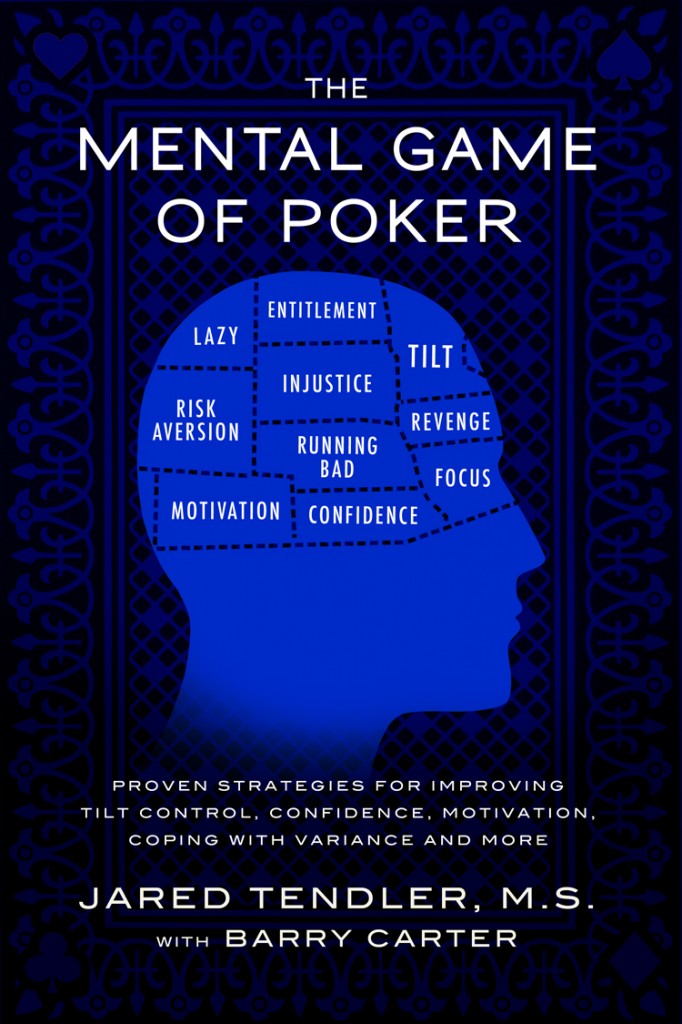
Previous part of the book “Mental Game of Poker”: The Ultimate Problem Solution, 5-Step Protocol
Additional Strategies
Monitoring Progress
There is currently nothing similar to Holdem Manager or Poker Tracker for the mental game. To know your progress in the mental game, you need to find a way to do it without trying to keep everything in your head.
Monitoring the mental game is important because progress is often very subtle. Not noticing it can make you think you are no longer improving, which negatively affects your motivation and desire to learn. Realizing that you are improving gives you the much-needed confidence and desire to keep working.
Here are some ways you can recognize that your mental game is improving:
- You better recognize your mental game problems while playing.
- You can identify the signs predicting those problems before reaching an emotional breaking point (this does not mean you can control your emotions, but it does mean you understand what is happening).
- You are better able to control your emotions during the game.
- You make fewer technical poker mistakes.
- By better dealing with the problem, you can extend your poker playing time.
- You stop playing faster (for the right reasons).
- You can regain your lost proper mindset faster.
- The desire to curse your opponents decreases.
- Fewer negative thoughts in your head.
- You start feeling normal again faster after a bad session.
- Your worst has become better than it was before.
- You recognize new layers of the problem or entirely new problems.
- You feel an increased desire to improve your game after the session ends.
Writing
Writing can be a very effective tool when trying to improve any aspect of the mental game. This does not mean you need to become a writer; it is simply a tool that will help:
- Improve recognition
- Accelerate learning
- Clarify things in your head
- Create records that you can later use for comparisons
- Free up your memory
- Organize information
- Capture information that will be useful in solving future problems
- Maintain an organized game
When players start writing, the biggest difficulty is not knowing what to write. Each chapter of this book provides suggestions on what to write, but if you want to start right away, answer the questions posed in the second appendix.
Accumulated Emotions
When emotions accumulate over long periods, their intensity can become so strong that they immediately overwhelm your mind and ability to control yourself.
When you feel nervous playing a big pot, you feel the anxiety of that day plus the ingrained anxiety you felt in many big pots played in the past. Emotions accumulate, so after one bad beat in just 5 hands of the session, you completely lose your composure. Then you ask yourself, “Why the hell does this always happen to me?” Because you are angry about the bad beat that just happened and about those that constantly happen. All emotions accumulate in your memory, and together they overwhelm your thoughts and mind.
Analyzing accumulated emotions requires more work away from the poker table because inserted logic does not help when you are overwhelmed by emotions. A good way to manage emotions is to solve ingrained problems. The fewer suppressed emotions inside, the easier it is to maintain self-control. The following steps will help you deal with ingrained emotions.
- Understand that accumulated emotions are a significant risk every time you sit down to play, so take them seriously. Do not expect those emotions to disappear quickly. Instead, strive to consistently reduce the intensity of the emotions you feel while simultaneously increasing your ability to control emotions. This process is not the same as flipping a switch. Some days will be easier than others because your ability to control emotions has a certain qualitative range.
- Apply the 5-step protocol to each problem. Study the recorded information as you would study any other poker concept.
- Try to recognize the signs predicting upcoming problems as best as you can. And practice recognizing them faster and faster while playing.
- Use an alarm clock.
- Rewrite the past. Do not take this literally, as it is impossible. Apply the 5-step protocol to each old memory of the problem.
- Write down everything you have learned from these old memories. Even bad experiences are good because they teach you what not to do. Using everything you have learned in the past for today's improvement contributes to resolving old emotions.
- If you are critical of past mistakes or failures, then read the chapter titled “Mistakes Bridge“.
- Eliminate hopes that this should not have happened or should have been resolved earlier. If this were true, you would not be in your current situation. Many players face the same problems, so do not overemphasize them; do what is necessary to solve them.
- Pay attention to the subtle details of the problem. Use the 5-step protocol to help identify and resolve unknown problem details.
- Although the problems may be different, consider using at least one of the steps described in the chapter “Despair Bridge“.
Accumulated emotions are the hardest mental game problem to solve, so doing everything yourself will be a big challenge. If the instructions provided here are too complicated or do not help you, then consider seeking help from a psychologist. If solving emotional problems becomes particularly difficult, consider whether there are external problems (unrelated to poker) that are hindering your progress.
Conclusions
With the right strategy, mental game problems become an opportunity to improve as a player. Trying to block emotional problems in today's game will not get you far. If you have big ambitions in poker, are trying to establish yourself as a winning player, or are a regular player who just wants to stay ahead, solving mental problems is a way to stop hurting yourself and start hurting others.





